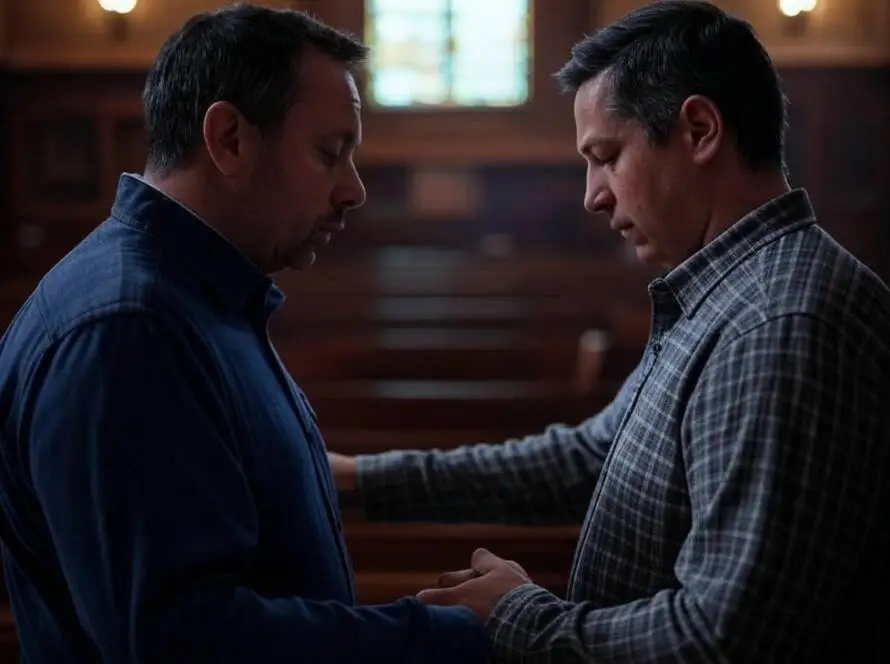It’s been said that there are a few words that must characterize your prayer and petitions before God; if not, you are not praying with enough boldness, power and authority, so your prayers might not be answered. Also, as you pray, you must remember who you are, know the power that lies within you, and speak it out – Because you have been given authority. What’s left for you to do is to claim it and grab it: whatever it is! And the third and final part of that prayer formula is to end with “In Jesus name!”
This may sound hilarious, but I believe most people who are reading this must have heard these words of prayer at some point in their lives. Mostly in charismatic circles or with “the prosperity preachers”.
These are the questions to consider: Do you have to pray like this? Would your prayer not be answered if it’s formulated otherwise? Does the word of your mouth have power as a believer? Do you have the power to decree things? More importantly: Is this a biblical way to pray? With no hesitation, the answer to all these questions is NO!
This tendency in prayer is sometimes associated with the little god’s doctrine. Which teaches that, Christian believers created in the image of God, are themselves little gods (Ps 82:6). So, God is on His throne waiting for you to ask and make known the desires of your heart unto Him, He must respond, He will give you whatever you want if you pray with faith, and of course then you must prove your faith by making a financial act of faith (giving money) to the preacher. I make no exaggeration: that is what we’ve heard prayed and taught by certain evangelicals, word of faith leaders and their followers. It’s ungodly and even blasphemous.
Let’s start by defining these two words and some other ideas that are a very important part of these prayer formulas. First, to “declare” means to announce officially, to state or proclaim something emphatically. To “decree” on the other hand, is to make an authoritative order, especially one having the force of the law. In matters of theology, it also means to ordain what must come to pass. So, when someone in position of authority like a judge, a President or a king makes a decree, it must come to pass, so he declares it officially and emphatically. Above all earthly entity we see the eternal decrees of God and His oracles all throughout the Scriptures. They have come to pass and must continue to happen according to His sovereign will. This passage of scriptures sums it all:
“For as the rain comes down, and the snow from heaven, and do not return there, but water the earth, and make it bring forth and bud, that it may give seed to the Sower and bread to the eater, So shall My word be that goes forth from My mouth; It shall not return to Me void, but it shall accomplish what I please, and it shall prosper in the thing for which I sent it(Isaiah 55:10-11).”
Now, do we mere individuals have the power to make such declarations or decree things like this because we are children of God?
In multiple passages of the Bible, we see people and individuals declaring the work of the Lord, His statutes or ordinances. Which is synonymous to proclaiming after the prophets: “thus saith the Lord.” In that same manner we are called to declare, in other words: officially proclaim God’s greatness, His righteousness, His goodness, His glory, His judgements, and ultimately His work in the gospel (1 John 1:5; Ps 64:9; 1 Cor 15:1; PS 118:17). But no mere man, or so-called prophet nowadays, has the right and the power to declare and decree things over the realm of Satan and his demons, over nature and the universe, or declare and decree things for financial growth and life success. On the contrary, many who pray in such manner have spoken evil of whatever they do not know (Jude 8-11).
It is even absurd for some to misinterpret Psalm 2: 7-9 to say that as children of God we can declare and decree things, and we can ask the Lord and He will give us the ends of the earth as our possession and so on. That is blunt misinterpretation! As a messianic passage, Psalm 2 has nothing to do with giving man any power or promises as such.
Now, have you ever considered the prayer of Elijah on mount Carmel (1 King 18: 36-37)? As he prayed for fire to come down from Heaven… Look closely, He did not declare and decree anything against Baal, He did not claim that his own words have power, He did not perform these signs because certain power lies within himself. All power and authority are from the Lord. He is the one who bestows power and authority to rulers and kings of the earth. Our authority consists in declaring the word of God as it is, trusting it, upholding and obeying it. God’s word itself is the final authority, upon which we must stand. Elijah’s account must serve as a vivid example of true prayer which relies on God’s power alone, for His glory alone, as we His servants and His people fall on our faces before Him.
One may say, well we have power from the Holy Spirit as Christians. Don’t we? Yes! Certainly, we have the power of the Holy Spirit.
First, Let start at creation. The Lord God gave Adam the power to rule and have dominion over all creation (Gen. 1: 26-28) – which still maintains today; but this does not give us any right to declare and decree anything into the physical or spiritual realm.
Secondly, the prophets have operated signs and wonders (including declare things to happen), according to the purpose and will of God in specific situations. But these things cannot be repeated nowadays (1 king 17: 1). Not only they were operated for certain purposes, in specific times in the history of the people of Israel, but they (these signs) have been given to us to complete God’s revelation (scriptures) which we have today (Joshua 10: 13). In that sense we have to understand that there are no prophets today according to the biblical definition and use of the term.
Thirdly, as new creation being indwelled by the Holy Spirit (Acts 1:8), we have been given power to become witness and proclaimers of the truth of the gospel (Matt 28: 18-20), with signs and wonders to attest the truth for a time (Acts 5:12, Eph. 2:20). We have also been given power to stand against the wiles of the devil and temptation (Eph 6:10-12), power and dominion over sin, death and persecution etc. (Rom 6:13-14; 1 Cor 15:57; Rom 8:35-37). But none of these passages gives us the right to pray as if we are demanding things of God, commanding with certain authority over Satan, or again declare and decree things in the spiritual and physical realm.

Finally, adding the signature “in Jesus’ name” at the end of our prayers does not validate or constrain God to answer our prayers. True prayer must be characterized by glorifying God, declaring His holiness, upholding His sovereign will and His rule, then ‘submitting’ our needs and requests to Him, while recognizing our unworthiness. Overall, it starts and ends with glorifying God. When we pray, we must seek for God’s will to be done first and foremost. That is what the term “In Jesus’ name” stands for. God is glorified when we submit to His perfect will, not ours first.
In the garden of Gethsemane, The Lord Jesus Christ had all the power to declare and decree things into existence while He prayed, but He did not. Rather He submitted himself to the Father’s will unto death – by drinking the cup of His wrath as He bore our sins and died on the cross (Matt. 26:39, Phil. 2:6-11). Do we have a greater example than his? Not that I know of.
The Lord himself gave the disciples the well-known formula upon which their prayer must be built (Matt 6: 9-13): What do we see in there? We see God as our father, and His holiness, the glory of his kingdom, the exaltation of his rule, his reign and perfect will, our request submitted unto him as our spiritual and physical provider, our forgiver and savior, unto whom be all the glory now and forever. Notice that it starts with glorifying God as our father and ends with a doxology. This is the skeleton upon which our prayers must stand.
Biblical Prayer is all about God’s glory and his perfect will as we submit to him for all our needs. God doesn’t take command from any of us. He is not obligated to answer a prayer to the merit of the person’s faith, because certain power lies within us, or our words have superpower. But every believer who prays to His glory, according to His sovereign will and plans, in the person of Jesus Christ by faith, will see the glory of God (John 11:40).
John MacArthur rightly said:
“Prayer is not an attempt to get God to agree with you or provide for your selfish desires. But it is both and affirmation of His Sovereignty, righteousness, and majesty, and an exercise to conform your desires and purposes to His will and glory”.


